Adani Group: Strengthened Operations and Reduced Risks
The Adani Group, a prominent conglomerate spanning sectors like ports, energy, and infrastructure, has made significant strides in reducing operational risks over the past few years. Bernstein Research’s latest report highlights key improvements, including a dramatic reduction in share pledges, enhanced leverage metrics, and a more balanced debt repayment structure. These measures have bolstered the group’s financial stability and addressed concerns raised during past controversies.
Operational Risks and Improved Metrics
The operational risks for the Adani Group have reduced significantly over the past few years, according to Bernstein Research. Key improvements include a sharp reduction in share pledges and better leverage metrics. Share pledges, a major concern highlighted during the Hindenburg Research allegations, have dropped dramatically. For instance, Adani Power’s share pledge decreased from 25% to 1%, and Adani Ports saw its share pledge fall from 17% to nil. Promoter holdings have also risen, with Ambuja Cements witnessing an increase from 63% to 68% due to warrants issued.
Leverage and Debt Management
The group’s overall debt has seen fluctuations but remains on a downward trend compared to previous years. Post-Hindenburg, the group’s net debt-to-EBITDA ratio has improved significantly as operational assets across segments boosted profitability. While total debt increased to ₹2,793 billion as of September 2024 (up from ₹2,385 billion in March 2023), it remains well-supported by ₹300 billion in cash reserves. Furthermore, the group has shifted its funding sources from international bonds to NBFCs, capitalizing on favorable Indian market rates.
Balanced Debt Repayment Schedule
Debt repayment, a key focus area, is now more balanced. For instance, concerns regarding Adani Green Energy’s $750 million bond due in 2024 have been addressed with a revised repayment plan. Although there is a revolving facility of ₹177 billion, with ₹89 billion due in March 2025, the availability of substantial cash reserves mitigates risks. Additionally, the next dollar bond repayment is not due until August 2026, reducing immediate pressure.
Valuation Comparisons
In terms of valuation, Adani Ports continues to trade below peers like JSW Infrastructure and Container Corporation, while Ambuja Cements is valued on par with other major cement players. Adani Green Energy, though lacking a direct peer, aligns with private sector competitors such as JSW Energy and Tata Power.
Strategic Actions and Resilience
Bernstein notes that the group has taken substantial steps in recent years to address concerns, particularly those raised during the Hindenburg controversy. Gautam Adani’s leadership has emphasized resilience, with the group rejecting allegations and highlighting operational and financial improvements. The Adani Group’s actions reflect a robust commitment to mitigating risks and maintaining competitiveness in its core sectors, including ports, cement, and green energy.
GQG Partners Faces $1.5B Withdrawal Amid Adani
GQG Partners experienced a significant $1.5 billion withdrawal from its funds following the allegations against the Adani Group. This led to a 13% drop in the company’s stock value on December 2. In response to these developments, UBS downgraded GQG Partners’ rating to “Neutral” and lowered its target price to A$2.30. The downgrade was based on concerns over the potential impact of the Adani-related withdrawals, with UBS predicting that the firm could face a $390 million loss in funds.
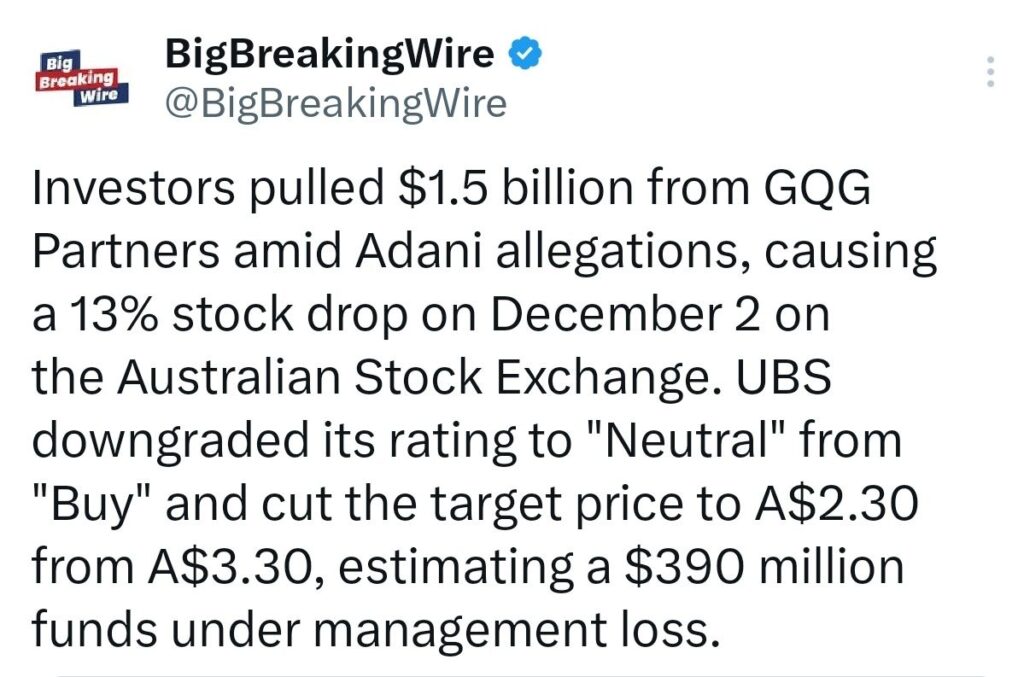
Adani Reaffirms Commitment to Compliance Standards
During a conference in Jaipur, Gautam Adani reaffirmed his dedication to upholding world-class compliance standards in the Adani Group, despite the ongoing legal challenges the company faces. He emphasized that no member of the Adani Group has been charged with any criminal offenses related to obstruction of justice or violations of the Foreign Corrupt Practices Act (FCPA), addressing concerns surrounding the group’s legal standing.
Indian Banks Reassess Exposure to Adani Group
In the wake of a US indictment, several Indian banks, including State Bank of India (SBI), are revisiting their exposure to the Adani Group. Sources cited by Reuters indicate that SBI is specifically evaluating whether it needs to strengthen its due diligence processes when issuing new loans to the group.
As of March 2024, Indian domestic banks and non-banking financial companies (NBFCs) hold 36.5% of the total debt of the Adani Group, up from 31% the previous year. Domestic lenders have extended ₹88,100 crore of the group’s total debt, which amounts to ₹2,41,394 crore. Meanwhile, the debt from domestic markets has increased to ₹12,404 crore, while the group’s global debt has decreased to ₹1,32,315 crore.
Bringing you the latest updates on finance, economies, stocks, bonds, and more. Stay informed with timely insights.
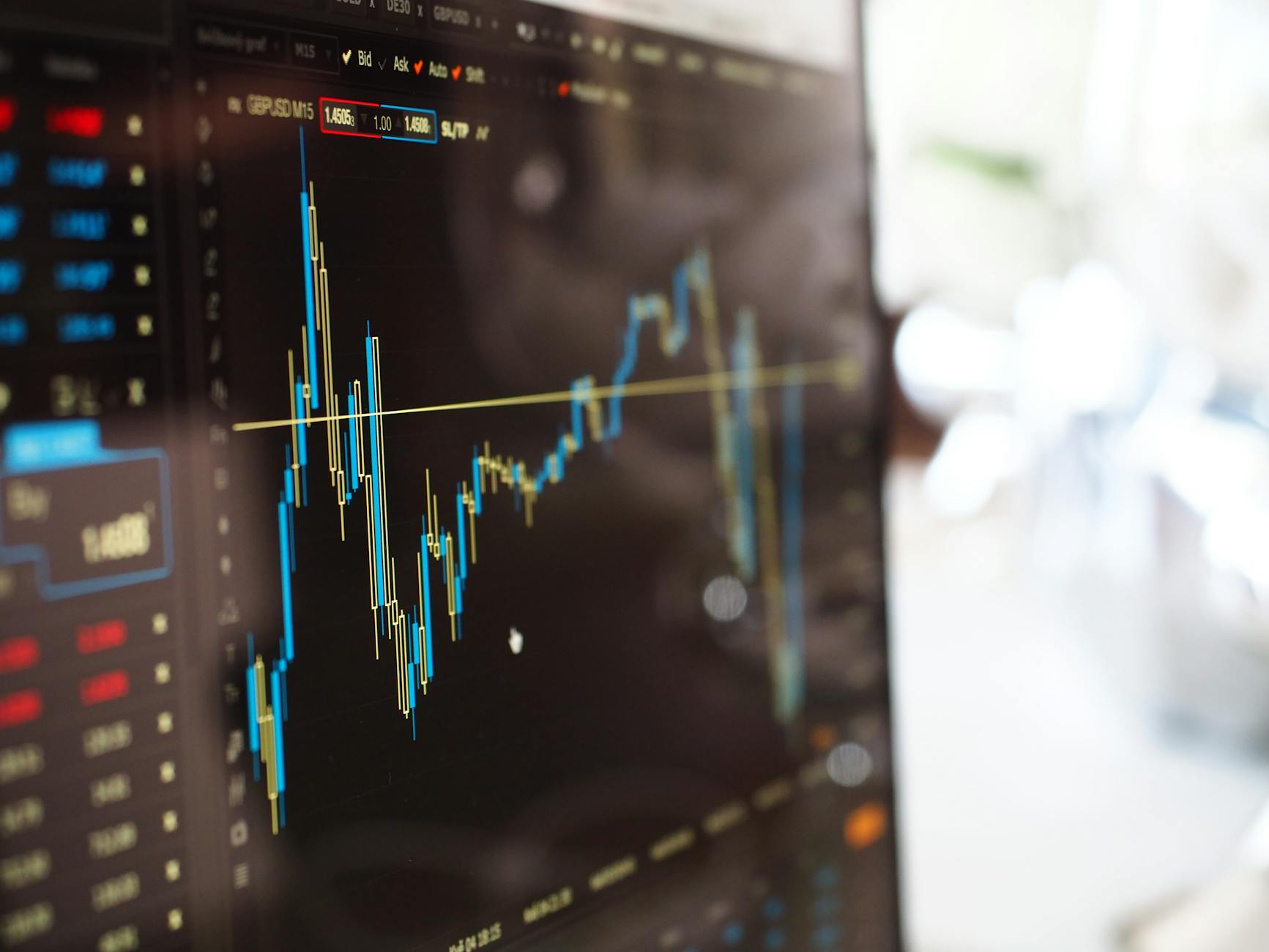














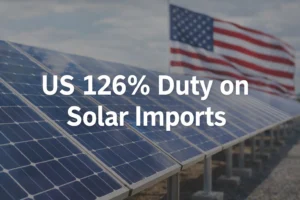

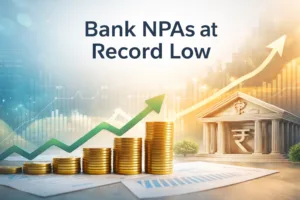


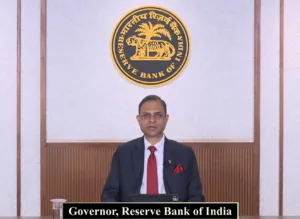




Be First to Comment